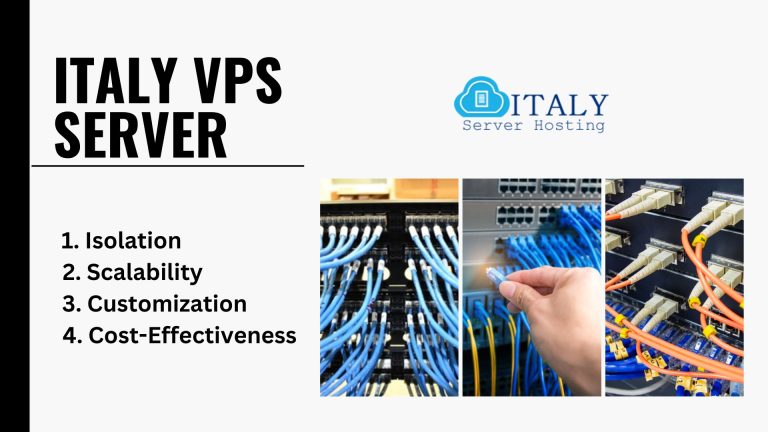In the fast paced digital era, effective server management is crucial for businesses and individuals alike. A well managed server ensures optimal performance, reliability, and security. This article will guide you on how to enhance your server management skills, specifically focusing on the benefits of using a South Korea VPS server in Seoul.
Understanding VPS Hosting
Virtual Private Server (VPS) hosting provides a middle ground between shared hosting and dedicated servers. It offers advantages such as increased control, better performance, and enhanced security. Choosing VPS hosting lays the foundation for effective server management.
South Korea VPS Server
When it comes to VPS hosting, South Korea stands out as a strategic location. The Seoul VPS server provides unique advantages, including low latency, high speed connectivity, and a stable infrastructure. These factors contribute to an improved overall server experience.
Features of Seoul VPS Hosting
High Performance Infrastructure
Seoul VPS hosting is equipped with cutting edge infrastructure, ensuring fast data transfer and reduced lag. This is particularly beneficial for resource intensive applications and websites.
Enhanced Security Measures
Security is paramount in server management. Seoul VPS hosting incorporates robust security features, including firewalls and regular security updates, safeguarding your data from potential threats.
Scalability and Flexibility
The ability to scale resources based on demand is a key advantage of Seoul VPS hosting. Whet your website or application experiences sudden traffic spikes or growth, a VPS server in Seoul can adapt seamlessly.
Setting Up Your South Korea VPS Server
Setting up your Korea VPS server is a straightforward process. Follow these steps to ensure a smooth and customized setup that aligns with your specific requirements.
1. Choose a reliable VPS hosting provider offering services in Seoul.
2. Select the appropriate server plan based on your resource needs.
3. Customize server settings, including operating system and software installations.
4. Configure security settings to enhance server protection.
5. Test your server to ensure proper functionality.
Server Management Best Practices
- Regular Backups and Updates
Implement a robust backup strategy to prevent data loss. Regularly update your server’s software and applications to patch security vulnerabilities and improve performance.
- Monitoring Server Performance
Utilize monitoring tools to track server performance metrics. This proactive approach allows you to address potential issues before they impact your server’s functionality.
- Troubleshooting Common Issues
Familiarize yourself with common server issues and their solutions. Having troubleshooting skills can save valuable time and minimize downtime.
Optimizing Performance
1. Utilizing Resources Efficiently
Optimize your server’s resource usage by allocating resources based on priority. This ensures that critical applications receive the necessary resources for smooth operation.
2. Implementing Caching Mechanisms
Use caching mechanisms to reduce load times and enhance user experience. Caching stores frequently accessed data, minimizing the need for repeated resource intensive processes.
Security Measures
1. Importance of Server Security
Prioritize server security to protect sensitive data and maintain the integrity of your applications. Regularly audit security measures to identify and address potential vulnerabilities.
2. Steps to Enhance Server Security
Implement firewalls, secure authentication methods, and encryption protocols. Stay informed about the latest security threats and applies relevant patches promptly.
Cost Effectiveness of Seoul VPS Hosting
When evaluating hosting options, consider the long term cost effectiveness of cheap VPS hosting. While the initial investment may be slightly higher than shared hosting, the benefits in terms of performance, security, and scalability can result in significant savings over time.
Customer Support and Assistance
Choose a Korea VPS provider that offers reliable customer support. Assess the availability of support channels, response times, and the quality of assistance provided. A responsive support team can be invaluable in times of need.
Real world Applications
Explore real world examples of successful server management using Seoul VPS. Case studies highlight practical applications, lessons learned, and the positive impact on businesses and projects.
Tips for Server Optimization
1. Fine Tuning Server Settings
Regularly review and adjust server settings based on your evolving needs. Fine tuning ensures optimal performance and resource utilization.
2. Implementing Advanced Optimization Techniques
Stay informed about advanced optimization techniques. Experiment with new strategies to further enhance your server’s efficiency and responsiveness.
Future Proofing Your Server
Anticipate future technological advancements and plan your server upgrades accordingly. Being proactive in adapting to new technologies ensures that your server remains competitive and meets evolving requirements.
Common Mistakes to Avoid
1. Pitfalls in Server Management
Learn from common mistakes in server management, such as neglecting security updates, insufficient backups, and inadequate monitoring.
2. Learning from Common Errors
Understanding common errors enables you to develop proactive strategies to prevent them. Continuous learning is key to mastering server management.
Conclusion
Effectively managing your server with Germany Server Host is a strategic choice for performance, security, and scalability. By following best practices, optimizing performance, and staying informed about the latest advancements, you can ensure a reliable and efficient server environment.
FAQs
Q1. Is Seoul VPS hosting suitable for small businesses?
Yes, Seoul VPS hosting is scalable and can cater to the needs of small businesses, providing a cost effective and reliable hosting solution.
Q2. How often should I back up my server?
Regular backups are recommended, with the frequency depending on the frequency of updates and changes to your server environment.
Q3. Can I upgrade my server plan later if my resource needs increase?
Yes, most VPS hosting providers allow easy upgrades to accommodate growing resource requirements.
Q4. What security measures can I implement to protect my server?
Implement firewalls, use secure authentication methods, and keep software up to date to enhance server security.
Q5. How can I optimize my server for better performance?
Optimize your server by fine tuning settings, implementing caching mechanisms, and staying informed about advanced optimization techniques.







